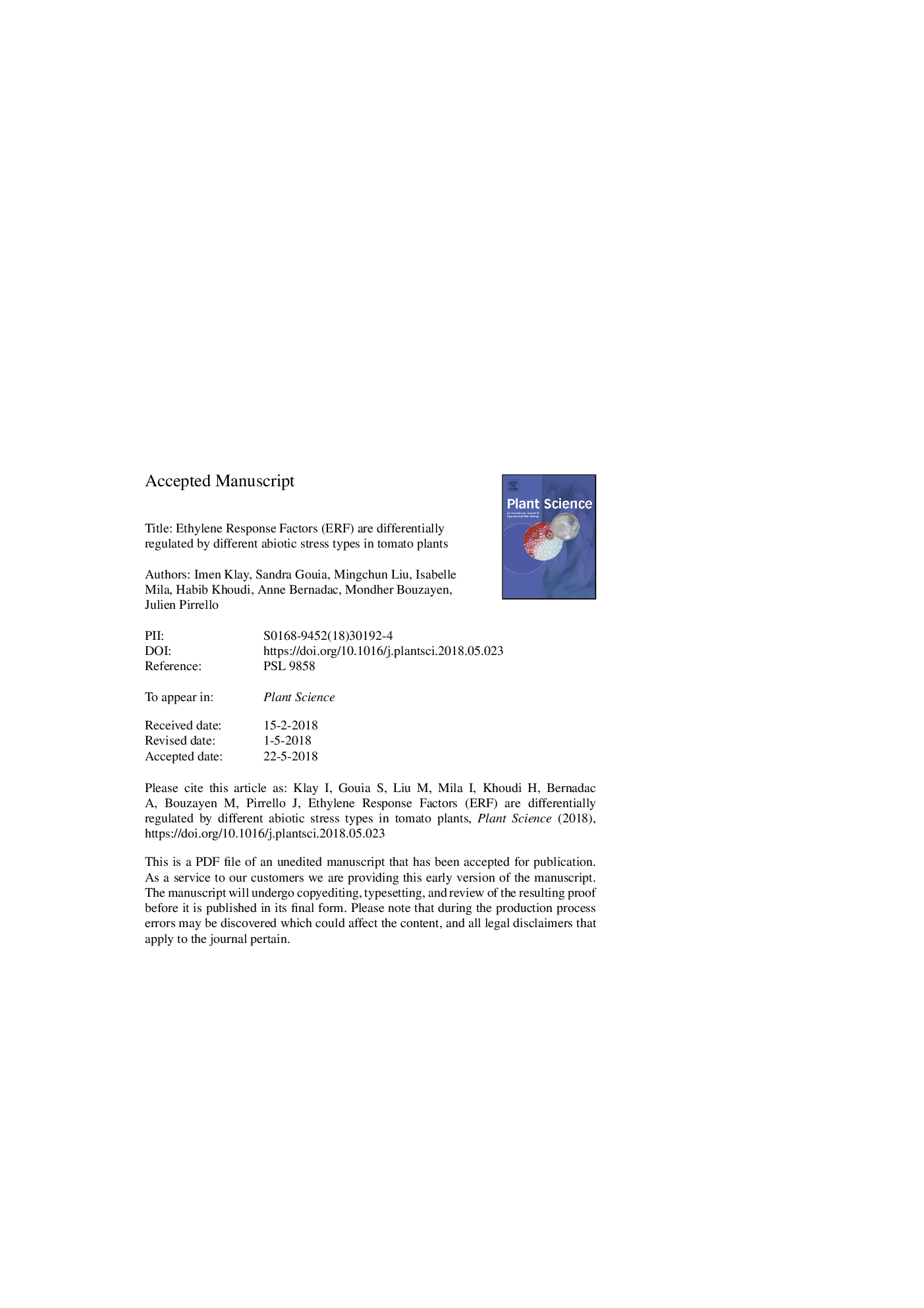| Article ID | Journal | Published Year | Pages | File Type |
|---|---|---|---|---|
| 8356237 | Plant Science | 2018 | 27 Pages |
Abstract
Plants are sessile organisms, hence to face environmental constrains they developed strategies that rely on the activation of stress-response genes under the control of specific transcription factors. The plant hormone ethylene mediates physiological, developmental and stress responses through the activation of Ethylene Response Factors (ERFs) which belong to a large multigene family of transcription factors. While an increasing number of studies supports the involvement of ERFs in abiotic stress responses, so far the specific role of ERF family members in different abiotic stress conditions remains unexplored. The present work investigates the expression profile of a set of ERFs, representative of different ERF types, in tomato plants subjected to cold, heat, salt, drought and flooding conditions. The study revealed that a group of ERFs is preferentially associated with cold and heat stress responses while another set is expressed in response to salt, water and flooding stresses. Transactivation assays indicated that ERFs can regulate the expression of abiotic stress genes regardless of whether or not they harbor conserved GCC or DRE cis-elements in their promoter region. The outcome of the study provides clue on which ERFs should be targeted when aiming to improve adaptation to a particular stress type.
Keywords
Related Topics
Life Sciences
Agricultural and Biological Sciences
Plant Science
Authors
Imen Klay, Sandra Gouia, Mingchun Liu, Isabelle Mila, Habib Khoudi, Anne Bernadac, Mondher Bouzayen, Julien Pirrello,
